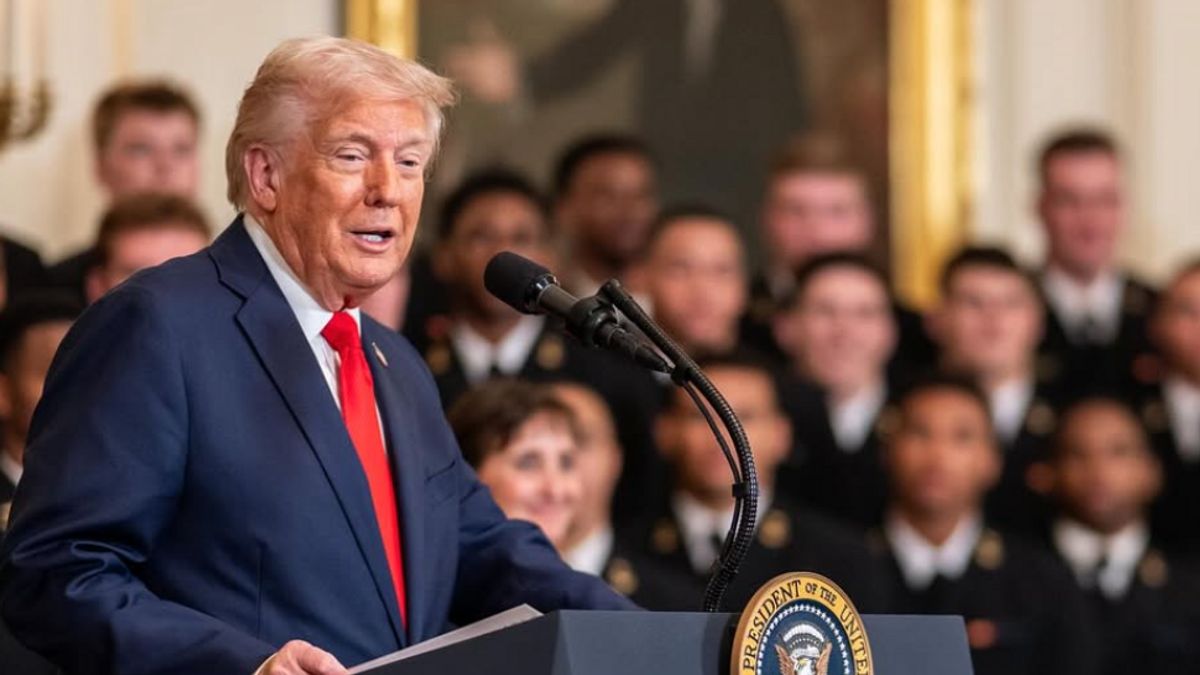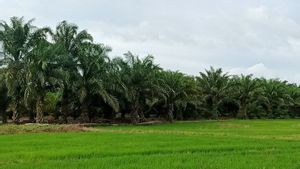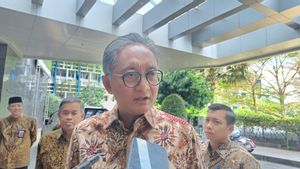JAKARTA - US President Donald Trump ordered to review potential new tariffs on all important US mineral imports.
This order is a major escalation in its disputes with global trading partners and efforts to fight against Chinese industry leaders.
The order revealed what had long been warned by manufacturers, industry consultants, academics, and others to Washington: the US is too dependent on Beijing and other parties for a version of processed minerals that drive its entire economy.
China is the top global producer for 30 of the 50 minerals deemed important by the US Geological Survey and has restricted exports in recent months.
Trump signed an order directing Trade Minister Howard Lutnick to start a national security review under Section 232 of the 1962 Trade Expansion Act.
It was the same law Trump used during his first term to impose a global tariff of 25% on steel and aluminum and the law he used in February to launch a study of potential copper tariffs.
The US's dependence on mineral imports "enhancing potential risks to national security, defense readiness, price stability, and prosperity and economic resilience," Trump said in the order.
Within 180 days, Lutnick was required to report his findings to the president, including whether to charge the tariff.
If Trump then charges an important mineral tariff for a country, the tariff will replace Trump's "returns" rate earlier this month, according to the White House.
The review will assess the US vulnerability to processing all essential minerals - including cobalt, nickel, and 17 rare earths, as well as uranium, according to the order.
The US currently extracts and processes lithium in small quantities, has only one nickel mine but has no nickel melt, and has no cobalt mines or refineries. Despite having some copper mines, the US has only two copper melts and relies on other countries to process such major red metals.
The investigation could provide benefits for some friendly supplying countries looking to get exemptions, given the US has previously marked a potential reduction in tariffs for energy and other minerals that are not available domestically.
"Given that Australia is an important mineral-trusted supplier to the US industry, this investigation provides an opportunity for the country to strengthen its position as a reliable supplier of key resources," said Tania Constable, CEO of the Minerals Council of Australia.
"However, we must not be complacent. Australia must negotiate a framework that provides shared benefits for Australian producers and the US industry, while continuing to establish and deepen strategic partnerships with other countries of the same mind," continued Tania.
Australian Strategic Materials (ASM) rare earth producers, which have been backed by US government funding, welcome all efforts to build alternative supply chains for essential minerals, "especially in today's environment where important mineral supplies are dominated by one country's players," said CEO Rowena Smith told Reuters.
"ASM can support US goals to build domestic capabilities by replicating Korean processing plants in the US," he said.
SEE ALSO:
The move is the latest in Trump's efforts to start production and processing of US minerals.
The president last month signed an order directing federal agencies to create a list of approved US mines and federal land that could be used for mineral processing.
However, it took years to build new mines and processing facilities, a timeframe that has sparked concerns about where the US could acquire minerals if tariffs were widely enforced.
"In the end, the US obtained certain minerals from China because there was no alternative supply elsewhere," said Gracelin Baskaran, director of critical mineral safety programs at the Center for Strategic and International Studies.
The English, Chinese, Japanese, Arabic, and French versions are automatically generated by the AI. So there may still be inaccuracies in translating, please always see Indonesian as our main language. (system supported by DigitalSiber.id)

















